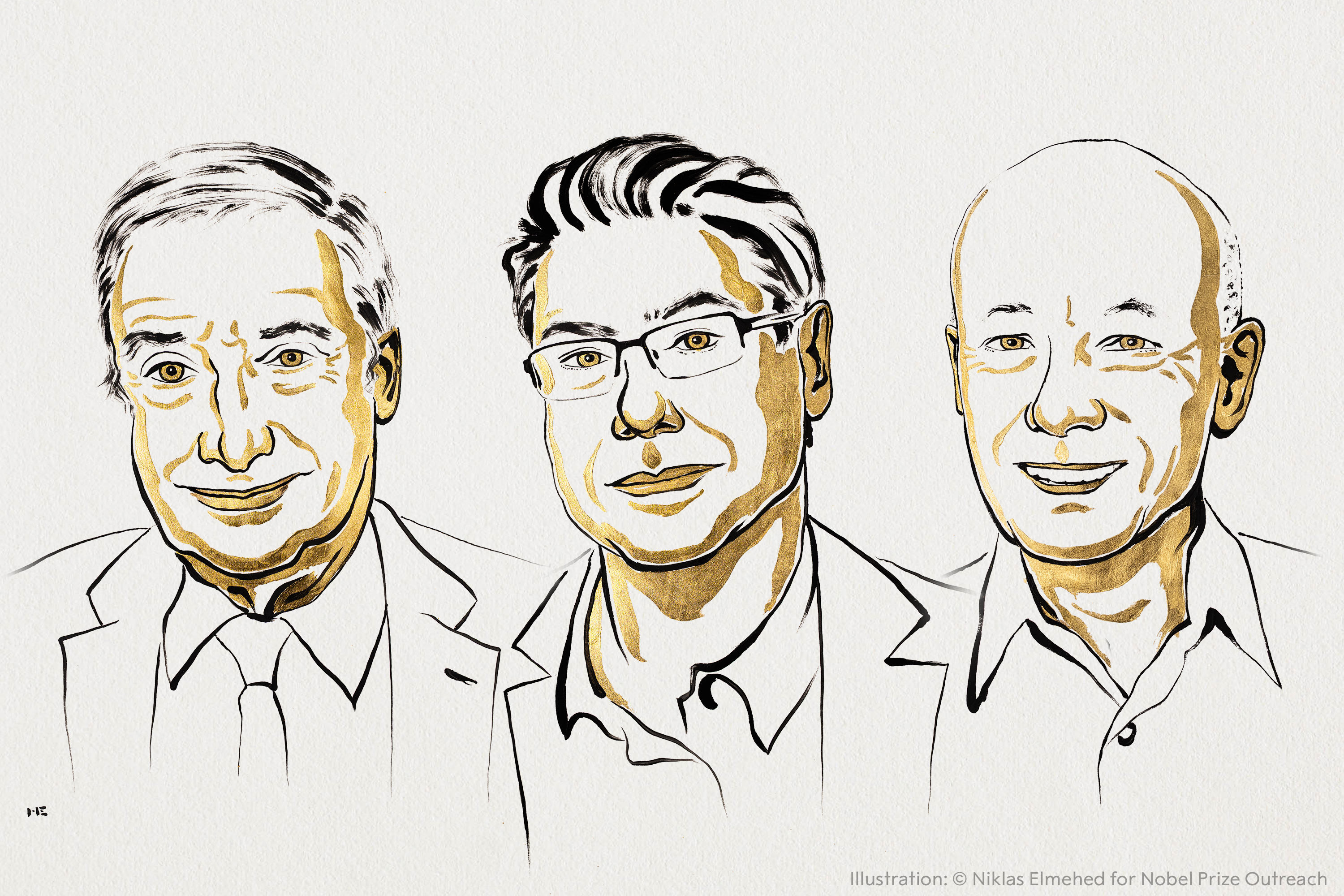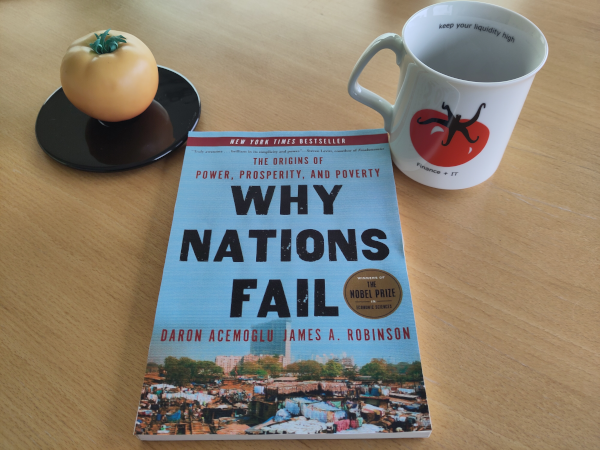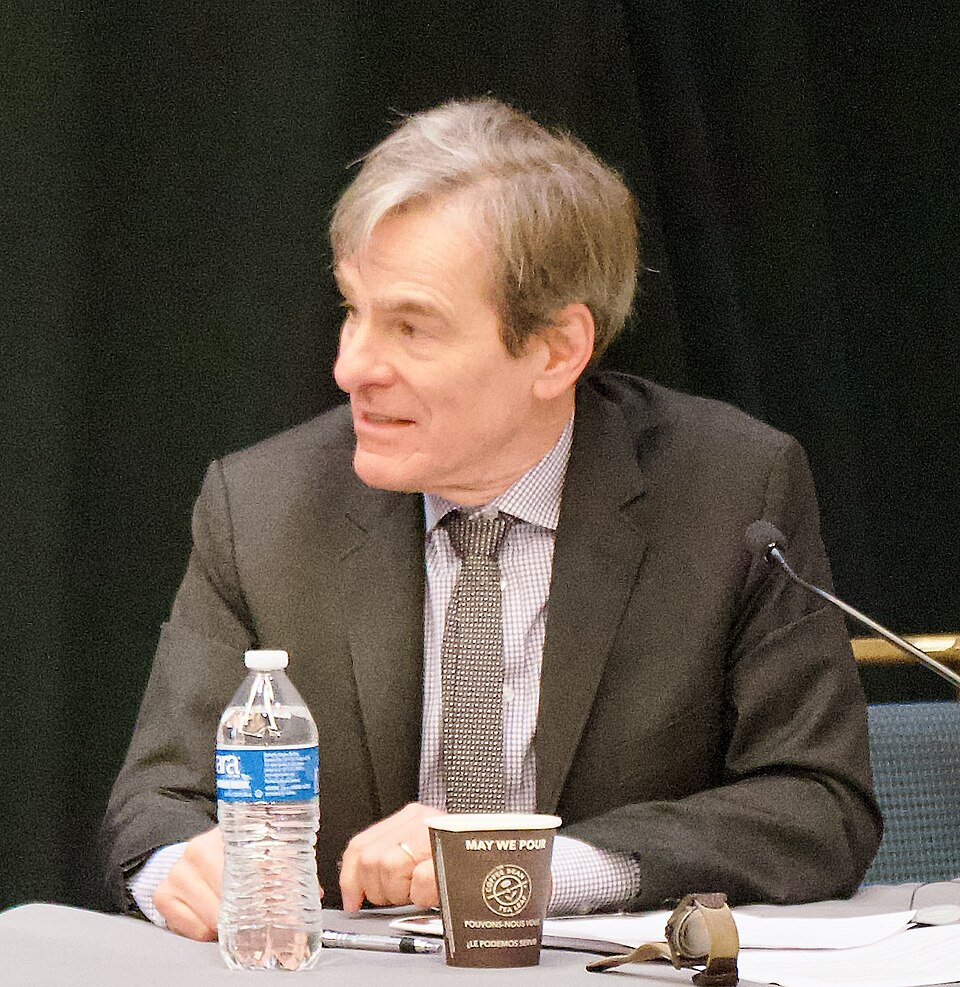TOMATO CATCH-UP - Newsletter Issue 280 - October 2025
Your monthly resource on working capital, process optimization, and issues related to the world of corporate treasurers, IT professionals, and bankers!
Introduction
Autumn is the perfect time of the year for seminars, trade fairs, and continuous learning and education. It is also the perfect time for culture: opera started again after summer, as well as the Zurich Film Festival that took place from September 25 to October 5. The popular ZFF Masters and ZFF Talks once again brought inspiring personalities to Zurich, like Russell Crowe, Collin Farrell, Dakota Johnson, or Benedict Cumberbatch. With over 100 films and numerous events, the ZFF has grown into the second largest film festival in the German-speaking world. You can find the most recent interviews here: https://www.youtube.com/@ZFFchannel/videos
In our business, your trade fairs this autumn: Swiss Treasury Summit in Luzern (mid-September), the Alpbach Summit in Tyrol (beginning of October), la BNS “Monetary Market” Conference à Genève (mid-November), and Structured Finance in Stuttgart (end of November). All appointments see below point 9.
This edition covers topics such as: Structured Finance, Treasury Map, Online Fraud, Credit Card Terminals, Tariffs, Trade Barriers, Stablecoins, US Policies, John Cochrane, Process Digitalisation, and more.
This newsletter is bilingual, English or German, depending on the source.
Remember that for any challenge related to your financial issues, you can ask Martin Schneider for a discussion that will clarify it. Contact Martin via email or call +41 44 814 2001.
- Nov 26.& 27.: Sehen wir uns? Structured Finance 2025 in Stuttgart
- Digitale Prozesse wie z.B. bei Garantien mit 70% Savings
- Kreditkarten Terminals mit 3G, Technik Ende Zyklus in Dez-2025
- Intra-EU Trade Barriers are as High as a 44% Tariff
- Nobel Prizes in Economics
- Nine European Banks to Issue Stablecoin in 2026
- BBC Online Fraud: A Report on How Employees Are Triggered
- Book Tip - Why Nations Fail: The Origins of Power, Prosperity, and Poverty
- Termine & Events
- From the Desk of Tomato
1. Nov 26.& 27.: Sehen wir uns? Structured Finance 2025 in Stuttgart
Die Messe Structured Finance im November ist in Ihren Plänen? Ich freue mich, Sie in Stuttgart zu sprechen und wiederzusehen!
Gern können wir bereits vorab per Mail, LinkedIn oder Telefon einen Termin vereinbaren! So lässt sich der Tag gemeinsam planen – zwischen den Workshops oder frühmorgens bei einem sehr guten Kaffee am Unikredit Stand.
Suchen Sie mich auf dem Messegelände? Via der SF 2025 App oder ein Telefonanruf an meinen Kollegen Esra Kummer im Tomato Atelier Kloten - Zürich +41 44 814 2001. So treffen wir uns.
2. Digitale Prozesse wie z.B. bei Garantien mit 70% Savings
Aus einem Bericht von DerTreasurer und bei Tomato NL-Nov-2023 aus einem Structured Finance Workshop.
Vorher manuell: Der Sachbearbeiter einer Tochtergesellschaft sendet Daten in ein z.B. ein Word-doc via Mail an Group Treasury. Vor der Nachrichten-Weiterleitung an die Hausbank(en), wandelt die Treasury die unterschiedlichen Daten und unterschiedliche Formate um, weil dies mehrere Hausbanken so wünschten in PDFs oder Word-Dokumente. Eine Bank setzte auf ein Online-Tool.
Nicht zu vergessen: sensible Daten via Email übermitteln entspricht nicht dem Corporate Sicherheitsstandard.
Heute digital: lokale Sachbearbeiter tragen Daten ins System ein, relevante Texte werden mit Dropdown angewählt. Transaktionen werden im Vier-Augen-Prinzip freigeben und elektronisch an die ausgewählte Bank übermittelt.
Beim System von Mitigram ist es möglich Daten via Swift MT7xx auszutauschen; der Ebics Kanal wurde in diesem Falle bei Brückner Group bevorzugt.
Arbeitsersparnis: 70% bei Brückner Group und 40% bei den betroffenen Banken.
Wann beginnen Sie Prozesse in Garantien und Akkreditive zu digitalisieren?
Möchten Sie Ideen, haben Sie Fragen? - Nehmen Sie Kontakt zu Martin Schneider auf.
Bericht mit Details bei DerTreasurer
Do you prefer English?
If you wish to reduce manual work at the corporate level by 70% and 40% in bank(s), you may evaluate and choose to migrate your Guarantees to a digital workflow. Translate the above text article into your preferred language. Please translate the above article from DerTreasurer or get details at Martin Schneider.
3. Kreditkarten Terminals mit 3G, Technik Ende Zyklus in Dez-2025
Tomato ist seit vielen Jahren der Cash Management Spezialist für Massenzahlungsverkehr auf nationaler und internationaler Ebene, ebenso für Lösungen um online Shops / Webshops. https://www.tomato.ch/webshop.html
Schweizer 3G Terminals müssen dringlich ersetzt werden. Ende 2025 werden die 3G-Kreditkarten-Terminals aufgrund des zu Ende gehenden Lebenszyklus abgesetzt. Es bedarf der neuen Technologie und neuer Geräte.
Vous préférez le français ?
Les terminaux 3G suisses doivent être remplacés de toute urgence. À la fin de l'année 2025, les terminaux de paiement par carte bancaire 3G seront retirés du marché en raison de la fin de leur cycle de vie. De nouvelles technologies et de nouveaux appareils sont nécessaires.
Für Fragen und Lösungen sprechen Sie mit Esra Kummer von Tomato.
Details bei https://worldline.com/de-ch/campaigns/ms/3g-shut-down
4. Intra-EU Trade Barriers are as High as a 44% Tariff
According to IMF estimates from December 2024, the intra-EU trade barriers might be as high as a tariff equivalent of ~44% on average for goods trade. This means they are three times higher than trade barriers between US states. For services, these barriers are equivalent to a 110% tariff. For comparison, the EU’s effective external tariff rate is ~3%.
Furthermore, according to IMF analysis, reducing these intra-EU trade barriers to US levels might have a direct long-term productivity boost of almost 7%. The existing productivity gap between the US and the advanced EU economies would be cut in half as a result. Investing in cross-border infrastructure, liberalizing protected industries, pursuing significant intra-EU trade liberalization, and standardizing laws among member states are all necessary to lower trade barriers.
Further reading on the IMF website
5. Nobel Prizes in Economics
Wirtschaftlicher Fortschritt ist ein relativ neues Phänomen, während unser Wohlstand erst seit etwa 200 Jahren stetig zunimmt. Der Wirtschaftshistoriker Joel Mokyr (Northwestern University, USA), einer der drei Gewinner des diesjährigen Nobelpreises für Wirtschaftswissenschaften, hat auf der Grundlage historischer Beobachtungen untersucht, was notwendig ist, damit technologischer Fortschritt nachhaltiges Wachstum stimuliert.
Den Preis teilt er sich mit dem 69-jährigen Franzosen Philippe Aghion (INSEAD, Paris, und London School of Economics) und dem 79-jährigen Kanadier Peter Howitt (Brown University, USA). Im Gegensatz zu Mokyr haben die beiden Wirtschaftsprofessoren moderne Daten verwendet, um den Einfluss des technologischen Fortschritts auf das Wachstum in ein mathematisches Modell zu übersetzen und so die Bedeutung der kreativen Zerstörung hervorzuheben.
Do you prefer English?
Economic historian Joel Mokyr (Northwestern University, USA) is one of the three winners of this year’s Nobel prize for economics. He has examined what is necessary for technological progress to stimulate sustainable growth on the basis of historical observations. This year, he shares the prize with Philippe Aghion (INSEAD, Paris, and London School of Economics) and Peter Howitt (Brown University, USA). In contrast to Mokyr, the two economics professors used modern data to translate the influence of technological progress on growth into a mathematical model to highlight the importance of creative destruction.
Details at nobelprize.org

Die Preisträger Joel Mokyr, Philippe Aghion und Peter Howitt (von links).
6. Nine European Banks to Issue Stablecoin in 2026
An article from CNBC. UniCredit, ING, Banca Sella, KBC, Danske Bank, Dekabank, SEB, CaixaBank, and Raiffeisen plan to roll out a new euro-denominated stablecoin in the second half of 2026.
Stablecoins are a type of cryptocurrency designed to provide users with greater price stability by pegging to an existing fiat currency or commodity. The new stablecoin is expected to provide efficient, programmable, peer-to-peer-based payment solutions for users globally. The new euro stablecoin will be managed by a Netherlands-based company formed by the consortium, and will be licensed and supervised by the Dutch Central Bank.
As per CNBC,US stablecoins account for 99% of total market capitalization (292 billion USD), whereas Euro-denominated stablecoins have an estimated market cap of ~587 million USD.
7. BBC Online Fraud: A Report on How Employees Are Triggered
Tomato’s long-time newsletter reader Rolf Lehmann read on BBC a coverage and put together this communication on how cyber-criminals exploit insiders.
A BBC reporter was approached by a cyber-criminal group called Medusa (ransomware-as-a-service group believed to operate from Russia or allied states), offering a cut of a ransom payment in exchange for insider access to BBC systems. The contact, using the alias Syn (Syndicate), reached out via Signal and proposed a deal where the reporter would provide login credentials so the hackers could infiltrate and extort the BBC.
The reporter, under editorial guidance, engaged with Syn to understand how such insider threats unfold. As the conversation progressed, Syn became impatient and initiated a multi-factor authentication (MFA) bombing attack – sending repeated login requests to the reporter’s phone to trick him into granting access. This aggressive tactic prompted the BBC to disconnect the reporter from internal systems as a precaution. Eventually, Syn apologized and disappeared after the reporter stopped responding.
Bevorzugen Sie Deutsch?
Ein BBC-Reporter wurde von der Cyberkriminellen-Gruppe „Medusa“ über Signal kontaktiert, die einen Anteil an einer Lösegeldzahlung als Gegenleistung für Insider-Zugang zu den BBC-Systemen forderte. Diese aggressive Taktik veranlasste die BBC, den Reporter vorsichtshalber von den internen Systemen zu trennen. Schliesslich entschuldigte sich Syn und verschwand, nachdem der Reporter nicht mehr reagierte.
Details Article in Englisch bei BBC
8. Book Tip - Why Nations Fail: The Origins of Power, Prosperity, and Poverty
The book comes from Daron Acemoglu and James Robinson, the two winners of the 2024 Nobel Prize in Economic Sciences. They illustrated how crucial social institutions are to the prosperity of a nation. Several questions are addressed in the book, including why some countries are wealthy while others are impoverished and whether location, culture, or the weather influence prosperity or poverty. None of these elements are deterministic or decisive, as Why Nations Fail demonstrates.
The two authors decisively demonstrate that our man-made political and economic structures are the foundation of economic success, drawing on fifteen years of unique research. To develop a new theory of political economy that is highly relevant to today's major issues, Acemoglu and Robinson draw on remarkable historical evidence from the Roman Empire, the Mayan city-states, the Soviet Union, the United States, and Africa.

9. Termine & Events
- Oct. 22, 2025: Cash Pooling für Schweizer Konzerne in Zürich von SLG Wien
- Oct. 26-29, 2025: Money 20/20 USA, Las Vegas, USA
- Nov. 3, 2025: Financial Crime 360, London, UK
- Nov. 4-5, 2025: Fraud Leaders Summit, Cannes, France
- Nov. 6, 2025: Identity-Centric Cybersecurity Impact Day 2025, Frankfurt, Germany
- Nov. 12, 2025: Treasurers.org ACT Annual Dinner, London, UK
- Nov. 13, 2025: Swiss Treasurers ACT-SR: BNS “Monetary Market” Conference, Genève, Switzerland
- Nov. 18-19, 2025: FTT Financial Services Futures, Austin, Texas, US
- Nov. 19, 2025: PSD3 & Open Finance Europe Forum, Frankfurt, Germany
- Nov. 19-20, 2025: Money Live Payments Europe, Amsterdam, The Netherlands
- Nov. 20, 2025: 7th Annual Bank of the Future Summit, Frankfurt, Germany
- Nov. 24-25, 2025: IACT 2025 Annual Treasury Management Conference, Dublin, Ireland
- Nov. 25-26, 2025: International Treasury & Cash Management, Sao Paulo, Brazil
- Nov. 26 und 27: Structured Finance, Messe Stuttgart
- Dec. 5, 2025: Swiss Treasurers ACT-SR: Perspectives Economiques 2026, Genève, Switzerland
10. From the Desk of Tomato
Schon immer faszinieren mich gesunde Finanzen und deren gesunde Systeme. Bei mir persönlich, in meiner Familie, bei Freunden und Bekannten und auch da draussen in der Welt. :)
Die NZZ interviewte John Cochrane zum Thema unverantwortliche Finanzpolitik. John Cochrane bereiste vor kurzem Zürich, bekannt für seinen Blog https://www.grumpy-economist.com/
Er argumentiert, warum eine Krise wie die in Grossbritannien im Jahr 2022 möglich ist. Die USA und Europa sollten mehr tun, um die Verschuldung unter Kontrolle zu halten. Eine weitere Inflationswelle ist möglich.
Den Preisanstieg ab 2021 führt der amerikanische Ökonom auf die Staatsverschuldungen zurück. Solange Menschen glauben, dass Schulden und Defizite ordnungsgemäss bedient und zurückgezahlt werden, führt dies nicht unbedingt zu Inflation. John Cohrane ist Befürworter von Schuldenbremsen, wie sie in der Schweiz praktiziert werden.
Wenn Regierungen kontinuierlich mehr ausgeben, als sie einnehmen, hält die Zentralbank die Zinssätze zu niedrig, was zu Inflation führt. Regierungen führen Kapitalkontrollen ein und zwingen ihre Banken, Staatsanleihen zu kaufen und zu halten. Staatsanleihen sollten genauso behandelt werden wie Unternehmensanleihen.

Xuthoria, AEA 2025 - John Cochrane 01, CC BY-SA 4.0
Read here on John Cochrane visits to Switzerland on his blog
Das ganze Interview lesen Sie in der NZZ oder bestellen den Artikel bei Martin Schneider
Enjoy and with best regards from the Tomato Atelier for Treasury and Finance
